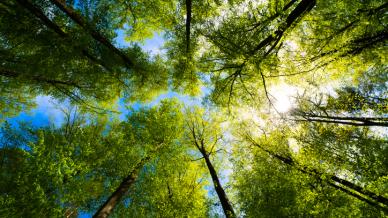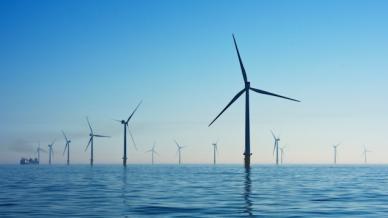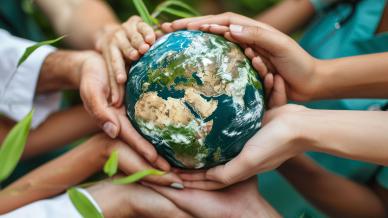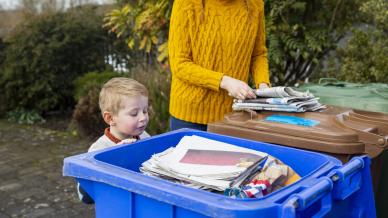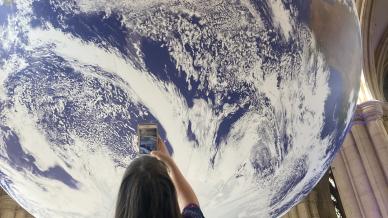What does Earth Day stand for?
Earth Day honours the achievements of the environmental movements and raises awareness of the need to protect the Earth’s environment and natural resources for our future generations. According to the organisers of Earth Day, each of these days can "drive a year of energy, enthusiasm, and commitment to create a new plan of action for our planet".
History of Earth Day
In 1962, "Silent Spring" by Rachel Carson was an influential book which raised public awareness about the detrimental effects of pesticides, particularly DDT, on the environment, wildlife, and human health. This was a catalyst for public concern on the links between pollution and health which culminated in Earth Day.
The origins of Earth Day trace back to the late 1960s when environmental activism motivated Wisconsin Senator Gaylord Nelson to create a national celebration uniting the environmental movement. In 1969, Nelson developed the idea for Earth Day. He was inspired by the anti-Vietnam demonstration and “teach-ins” that were taking place on USA college campuses. He saw a large-scale, grassroots environmental demonstration would be able “to shake up the political establishment and force this issue onto the national agenda.” He proclaimed the Earth Day concept at a conference in Seattle in late 1969 and invited the entire USA to get involved. With the help of Denis Hayes, a graduate student at Harvard University, the first Earth Day was organised on 22 April 1970. This event educated participants about the importance of environmental conservation and garnered support for environmental legislation in the USA.
Since then, Earth Day has grown into a global happening. In 1990, Hayes orchestrated a global Earth Day, with over 200 million participants in more than 140 countries. Now run by the Earth Day Network (EDN), more than 20,000 partners and organizations in 190 countries support the Earth Day mission year-round. This mission is created on the assertion that all people, regardless of race, gender, income, or geography, have a moral right to a healthy, sustainable environment.
Why is Earth Day important?
Earth Day should hold some significance for us because it serves as a powerful reminder of our responsibility to protect and preserve our planet. It shows us to be aware of our environment by raising global awareness about environmental issues such as climate change, deforestation, pollution, and loss of biodiversity. It encourages people to learn about these challenges and act. Earth Day brings together people from diverse backgrounds, cultures, and countries, uniting them in a common cause, emphasising that individual actions collectively affect the planet. By taking part in Earth Day activities, we contribute to a larger movement which cannot be ignored.
The day provides a platform for advocacy and policy change. It encourages citizens to engage with policymakers, demand stronger environmental regulations, and promote sustainable practices. It fosters education about environmental science, conservation, and sustainable living. Some schools, universities, and organisations coordinate workshops, seminars, and awareness campaigns to inform people about the importance of protecting Earth. It inspires community involvement. Some people may take part in tree-planting drives, beach cleanups, and other initiatives. These actions and other for the environment strengthen our sense of community and shared responsibility.
While Earth Day is a single day, its impact extends beyond that. It encourages long-term changes in behaviour, such as reducing plastic use, conserving energy, and supporting eco-friendly products. Earth Day reminds us that we are all stewards of the Earth, and our choices matter. By celebrating Earth Day, we commit to safeguarding our planet for current and future generations.
Earth Day has become a beacon in the fight to combat climate change. loss of biodiversity and pollution. As we celebrate its 54th anniversary, we should consider making use of this genuine global movement for good. Roll on the 55th anniversary next year!!!
Earth Day 2024 – Theme.
This year’s theme, Planet vs. Plastics, emphasises the urgent need to address plastic pollution for the sake of human and planetary health. The Earth Day organisation is firm in its devotion to end plastics, insisting a 60% reduction in the production of all plastics by 2040. Here are some key actions they suggest should be taken:
- Rapidly phase out single-use plastics: Reduce our reliance on disposable plastics that harm the environment.
- Advocate for a strong UN Treaty on Plastic Pollution: Urgently push for global cooperation to combat plastic waste.
- End fast fashion: Address the environmental impact of the fashion industry.
- Invest in innovative solutions: Support technologies and materials that lead to a plastic-free world.
What can I do as an individual?
For Earth Day 2024, there are several actions you can take as an individual to contribute to a greener, more sustainable planet. You can participate in cleanups and (rallies, not just on the day), making sure you register all cleanups on The Great Global Cleanup map and events or rallies on the Earth Day Events Map. You can also spread the message on social media. For more detailed information and additional ways to get involved, check out the Earth Day 2024 Toolkit and learn more at Earthday.org.
In line with the theme of Earth Day 24, just a quick reminder on how you can reduce your plastic waste. You may wish to think about the following:
- Avoid single-use plastics – In the UK there is a ban on single-use plastic plates, trays, bowls, cutlery, balloon sticks, and certain types of polystyrene cups and food containers. Other countries may not have made this step just yet. Do not use single use plastics anywhere. Metal and bamboo are practical alternatives, or biodegradable plastics if possible.
- Buy in bulk where possible – disposable containers are ever-present (polystyrene trays, PET bottles, tetra paks, plastic containers, etc) but more stores are offering the possibility to buy foods like cereals and rice in bulk. Purchasing in bulk is one of the easiest and quickest ways to change this. You can also either bring your own packaging or buy larger quantities packaged in recyclable materials.
- Look at your food storage – instead of using clingfilm, plastic bags or plastic storage containers, try choosing a bento or tiffin box. Use jars or glass container instead of plastic zipper bags or wrapping things in Cling film.
- Use a linen or cloth bag when you go shopping.
- Shop at a local farmers market – farmers markets are great ways to buy fresh, local produce without plastic. Do not forget your own linen or cloth bag. Shopping local at such markets also reduces your carbon footprint. That is helping to reduce two individual environmental issues for the price of one!!!
- Recycling - If you do happen to use any plastics, put your plastic waste in the correct recycling container and in accordance with your local recycling services.
- Cosmetics - Avoid using cosmetics that use microplastics.
- Clothing - By less clothing and wash them only when necessary- a single wash can cause 700 000 bits of microplastics to be released into the environment. Try and buy natural fabrics such as cotton, hemp, and linen. Such materials last longer and need less processing and water to make them, than the synthetic fabrics like polyester and nylon.
- Drinks – Buy drinks in glass bottles. If you are just drinking water, use a tap and a refillable water bottle.
Of course, there are many more ways to reduce your use of plastic. As well as Earthday.org, you may wish to consider visiting the site of Less Plastic UK which have some superb infographics which you can stick on your fridge door!!!!
What is going on at WEA to support Earth Day 2024?
WEA in its Green Curriculum aims to educate, inspire, and empower individuals and communities to act towards a more sustainable future. They look at the sciences behind climate change, how to deal with green issues, permaculture, and the more organic subjects about the environment. Under the Humanities and Science category in Nature, Ecology & Permaculture, WEA delivers several courses which will discuss the subject of this year’s Earth Day and beyond.


